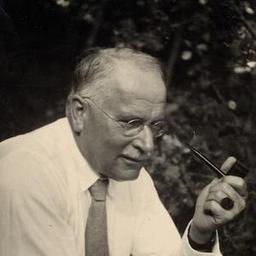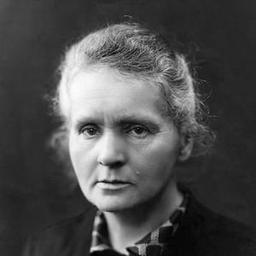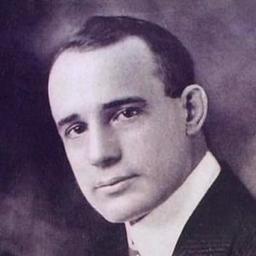
Reid Hoffman
Reid Garrett Hoffman is an American internet entrepreneur, venture capitalist and author. Hoffman was the co-founder and executive chairman of LinkedIn, a business-oriented social network used primarily for professional networking. He is currently a partner at the venture capital firm Greylock Partners.
232 Quotes
"Some people mistake grit for sheer persistence – charging up the same hill again and again. But that’s not quite what I mean by the word ‘grit.’ You want to minimize friction and find the most effective, most efficient way forward. You might actually have more grit if you treat your energy as a precious commodity."
— Reid Hoffman
"Managing risk is a key variable, frankly, all aspects of life, business is just one of them, and one of the things that most people do in terms of managing risk, that’s actually bad thinking, is they think they can manage risk to zero. Everything has some risk to it. You know, you drive your car down the street, a drunk driver may hit you. So what you’re doing is you’re actually trying to get to an acceptable level of risk."
— Reid Hoffman
"The thing that changes your professional life, your capabilities, your learning, your understanding, your opportunity flow, your ability to make things happen, is the center relationships you have with powerful and effective people around you in the industry, in the activity that you want to be doing."
— Reid Hoffman
"People change. You change. Some relationships just aren’t meant to last beyond a certain point. It’s okay to simply let those friendships fade. This is a natural evolution of some relationships. Unlike romantic relationships, with friendships there’s rarely a reason to have a full-on breakup. Even if people go in different directions and the friendship slowly peters out, trust can endure. And unlike most exes, it is possible to rekindle/reactivate friendships later on when your lives are more aligned."
— Reid Hoffman
"That focus on language and what that means for identities, how we communicate and how we collaborate is one of the key learnings I drew from studying Wittgenstein"
— Reid Hoffman
The Philosopher- Entrepreneur | Greylock"Philosophy isn’t just an abstract intellectual exercise. At its core, it focuses on improving our understanding of humanity, of how we evolve as individuals in a society."
— Reid Hoffman
The Philosopher- Entrepreneur | Greylock"We’ve evolved from living in tribes and thinking of kings as gods to valuing human rights as part of a nation-state. All these changes, including the birth of science itself, started with philosophy."
— Reid Hoffman
The Philosopher- Entrepreneur | Greylock"The purpose of philosophy is not to convey literal truth in the form of the beliefs of the philosophers and their words, but rather for those philosophers and their thoughts to provoke and improve your own thinking."
— Reid Hoffman
The Philosopher- Entrepreneur | Greylock"A key philosophical technique for understanding other people, ideas and theses is to ask yourself both what’s right and wrong about them."
— Reid Hoffman
The Philosopher- Entrepreneur | Greylock"one of the things I’ve said about entrepreneurship is that it should include an embedded theory of human nature. If you develop a theory about how human beings identify themselves, connect with others, view themselves to be part of a group and pursue a theory of the good, the conclusions you reach can help you design a product or service that appeals to people on a fundamental level."
— Reid Hoffman
The Philosopher- Entrepreneur | Greylock"everyone wants to be the hero of their own story, and great entrepreneurs make every user or customer a hero."
— Reid Hoffman
The Philosopher- Entrepreneur | Greylock"Aristotle taught us to revise our theories based on practice. The loop between theory and practice is to engage with the world to generate the theory, apply that theory to the world, and use the results to refine that theory. Lather, rinse, repeat."
— Reid Hoffman
The Philosopher- Entrepreneur | Greylock"My oft-quoted aphorism, “If you’re not embarrassed by your first product launch, you’ve launched too late,” is all about making sure that you’re balancing theory and practice. It doesn’t mean don’t have a theory. But it does mean to always be refining your theory with engagement."
— Reid Hoffman
The Philosopher- Entrepreneur | Greylock"Nietzsche felt that while the past was great, what really mattered was the creation of the new"
— Reid Hoffman
The Philosopher- Entrepreneur | Greylock"Rather than trying to copy the past, he believed we should pursue the act of creating better versions of ourselves."
— Reid Hoffman
The Philosopher- Entrepreneur | Greylock"Entrepreneurs invent businesses that attack the current “idols” (industry, markets, products) by creating something new and disruptive."
— Reid Hoffman
The Philosopher- Entrepreneur | Greylock"In the search for truth, language itself is where we need to start our examination."
— Reid Hoffman
The Philosopher- Entrepreneur | Greylock"“If a lion could speak, we could not understand him.”"
— Reid Hoffman
The Philosopher- Entrepreneur | Greylock"The Stanford Encyclopedia of Philosophy is a very good online resource for finding and studying the great philosophical questions of the past."
— Reid Hoffman
The Philosopher- Entrepreneur | Greylock"a core part of philosophy — all the way back to Socrates — is discussion."
— Reid Hoffman
The Philosopher- Entrepreneur | Greylock"finding time for discussing philosophy (even via Zoom) can be a powerful tool to build greater, deeper understanding."
— Reid Hoffman
The Philosopher- Entrepreneur | Greylock"Reid’s first principle is speed. One of his most popular quotes is, “If you aren’t embarrassed by the first version of your product, you shipped too late.”"
— Reid Hoffman
Reid Hoffman’s Two Rules for Strategy Decisions"“In founding a startup, you throw yourself off a cliff and build an airplane on the way down.”"
— Reid Hoffman
Reid Hoffman’s Two Rules for Strategy Decisions"Reid once told me that the key for big companies like LinkedIn is not to pursue strategies where being fastest is critical — big companies that adopt strategies that depend on pure speed battles will always lose. Instead, they need to devise strategies where their slowness can become a strength"
— Reid Hoffman
Reid Hoffman’s Two Rules for Strategy Decisions"Reid’s second principle is simplicity — simplicity enables speed."
— Reid Hoffman
Reid Hoffman’s Two Rules for Strategy Decisions"in a group decision-making process where there are various points of view, it’s important for the leader to distill and frame the option set with simplicity."
— Reid Hoffman
Reid Hoffman’s Two Rules for Strategy Decisions"Reid frequently groups the possible options into “light, medium, heavy” or “easy, medium, hard.”"
— Reid Hoffman
Reid Hoffman’s Two Rules for Strategy Decisions"When there’s a complex list of pros and cons driving a potentially expensive action, seek a single decisive reason to go for it — not a blended reason."
— Reid Hoffman
Reid Hoffman’s Two Rules for Strategy Decisions"If you come up with a list of many reasons to do something, Nassim Taleb once wrote, you are trying to convince yourself — if there isn’t one clear reason, don’t do it"
— Reid Hoffman
Reid Hoffman’s Two Rules for Strategy Decisions"In that essay, Hoffman described the ways the “wild idealism” of the era led to major advances that both positively and negatively impacted the world, and how the “seven deadly sins” of humanity form the basis of many technological pursuits."
— Reid Hoffman
Vices and Virtues in Web3 | Greylock"“Just because you have something that we would describe as a sin or as a negative emotion, it doesn’t mean in itself you’re bad or anything else,” says Hoffman. “It’s a question of what you do with them.”"
— Reid Hoffman
Vices and Virtues in Web3 | Greylock"Now, Reid, back in October, you wrote an essay about your experience with Web 2.0. And in it, you extended on your famous heuristic about investing in the Seven Deadly Sins."
— Reid Hoffman
Vices and Virtues in Web3 | Greylock"Well, first to back up a bit on history, which I think even Web 1.0 (the internet), had that kind of wild idealism."
— Reid Hoffman
Vices and Virtues in Web3 | Greylock"And there’s a little bit of, consciously, today’s color to say all that was wrong as opposed to that was right, which I think it was right at that time."
— Reid Hoffman
Vices and Virtues in Web3 | Greylock"I think that part of what was happening in the creation of the internet was the notion of redefining this kind of space by which people could communicate and find each other by which information could flow."
— Reid Hoffman
Vices and Virtues in Web3 | Greylock"And then, Web 2 brought your real identity and your real relationships."
— Reid Hoffman
Vices and Virtues in Web3 | Greylock"So, that as a baseline for saying kind of the principles of what’s going on Web3, I think the answer is it’s good."
— Reid Hoffman
Vices and Virtues in Web3 | Greylock"And the theory by which Web3 folks are talking about this, which I think is very interesting, you say, “Look, what happened with the baseline internet technologies is we learned how to ship bits around that didn’t really carry a lot of intrinsic value.”"
— Reid Hoffman
Vices and Virtues in Web3 | Greylock"They might have a lot of value as an essay or piece of information, or communication, or a video or a song. But they’re not like themselves carrying the value that money or contracts bring."
— Reid Hoffman
Vices and Virtues in Web3 | Greylock"“crypto capital systems” –which capitalize upon on currency, asset platform cap, capital systems – that will actually facilitate commerce and trade within the world. And I think this wild idealism is the right place to start."
— Reid Hoffman
Vices and Virtues in Web3 | Greylock"""There are reasons why getting these systems to scale still adds even more value. But it comes with some prices that we should mitigate."""
— Reid Hoffman
Vices and Virtues in Web3 | Greylock"We regulate speech already. It’s just the question of where you draw the lines, that we try to draw the lines with a maximum orbit against major harms. And we just have to understand other major harms, and then redraw with maximum orbit on major harms and how you do it and how you use technology in order to do that. And so, I think that those are the questions of how you address some of the Web 2.0 stuff."
— Reid Hoffman
Vices and Virtues in Web3 | Greylock"I think it can have a very negative impact, or very limiting of the future impact. And the question is essentially How do we shape the future?"
— Reid Hoffman
Vices and Virtues in Web3 | Greylock"“If I take that concept of Web3 and ownership, and compare it to Web 2.0 and the creativity that it unleashed, it’s something where we had a lot of new user-generated content in the Web 2.0, well, it’s almost like we have user-generated assets or user-generated value in the web 3.0 world.”"
— Reid Hoffman
Vices and Virtues in Web3 | Greylock"So, there’s all kinds of ownership that actually can play into this as well."
— Reid Hoffman
Vices and Virtues in Web3 | Greylock"And part of what I think is very interesting is, is the various ways in which ownership, like we all tend to say ownership is I have this complete ownership. And actually, in fact, I think as technology evolves, we realize that ownership is a sophisticated relationship."
— Reid Hoffman
Vices and Virtues in Web3 | Greylock"All of this stuff are questions around ownership that begin to enter once you have more sophisticated technology. And I think that more sophisticated technology always enters it."
— Reid Hoffman
Vices and Virtues in Web3 | Greylock"""I think what is super interesting about Web3 is this notion of, 'Well, since we have ownership as part of it, how does that notion of ownership evolve?'"
— Reid Hoffman
Vices and Virtues in Web3 | Greylock"And I do think ownership is one of the key things. Although, frankly, I think part of what defines human society and progress is how we stand in regards to relationship to each other:"
— Reid Hoffman
Vices and Virtues in Web3 | Greylock"How do we find each other, our identities? How do we ally? How do we form groups in societies and corporations and teams? And how do we work together and collaborate together and live together? All of these kinds of things."
— Reid Hoffman
Vices and Virtues in Web3 | Greylock"If you look at what I was saying as ownership as a sophisticated [concept], it’s because I think that ownership plays into how we relate to each other."
— Reid Hoffman
Vices and Virtues in Web3 | Greylock"“Using this framework, it seems pretty likely that if we look back at the mature Web3 a decade or so from now, the original sin would be greed.”"
— Reid Hoffman
Vices and Virtues in Web3 | Greylock"But this question is the reason why they’re identified as original sins is because they’re things we all grapple with. They’re deep in human nature. They’re our appetites or our reactions. And the things that get to breadth have that tie, that reflex."
— Reid Hoffman
Vices and Virtues in Web3 | Greylock"That’s part of the Theory of Moral Sentiments is like, “Look, by being greedy, we are being of service to each other.”"
— Reid Hoffman
Vices and Virtues in Web3 | Greylock"And that’s part of progress in society. And so, greed starts that, but it transforms to a how do we make essentially a nobler society."
— Reid Hoffman
Vices and Virtues in Web3 | Greylock"There’s different kinds of tempos and goals and other kinds of things and shapes and who works on the project and what’s coming out of it. But I think that all of that creates new infrastructure."
— Reid Hoffman
Vices and Virtues in Web3 | Greylock"But obviously, when you sublimate it, when you transform it, and [think about] the theory of moral sentiments into other things, that becomes what’s good."
— Reid Hoffman
Vices and Virtues in Web3 | Greylock"But we also want to make sure that we’re always targeting what’s the good outcome here."
— Reid Hoffman
Vices and Virtues in Web3 | Greylock"And I think one of the things you wrote, which is really important, is that it takes hard work."
— Reid Hoffman
Vices and Virtues in Web3 | Greylock"You said, in retrospect though, “What I didn’t sufficiently factor into my seven deadly sins heuristic is that the seven deadly sins are an enduring index of human behavior."
— Reid Hoffman
Vices and Virtues in Web3 | Greylock"Because the work is hard, that means there’s risk. The work also has costs that you as a platform developer could conveniently sidestep if you’re catering to or even just passively benefiting from people’s negative emotions and appetites. Your economic term returns will likely be lower."
— Reid Hoffman
Vices and Virtues in Web3 | Greylock"And so, I think that again, it comes back to the Theory of Moral Sentiments. This is a moral choice that people need to make. It is not purely an economic choice. We are going to choose something that may be even slightly negative economically but will be more beneficial to society."
— Reid Hoffman
Vices and Virtues in Web3 | Greylock"At LinkedIn, our tempo was always time saving, not time wasting."
— Reid Hoffman
Vices and Virtues in Web3 | Greylock"Because time saving is better for your economic things. So, the whole thing is for every individual and groups to better control their economic destiny."
— Reid Hoffman
Vices and Virtues in Web3 | Greylock"And we just got around later to figuring out one of the key things that I put in the essay, which was that societies and groups are put together by leadership, by role models, by people leading groups"
— Reid Hoffman
Vices and Virtues in Web3 | Greylock"And then the other question is more broadly as, “How do you make the terms of this transformation? How do you hook from these the original things into much more valuable things for individuals and society? And how do you build them?”"
— Reid Hoffman
Vices and Virtues in Web3 | Greylock"And it sounds like, again, if you think about the transformation that’s occurring, you have these technologists, entrepreneurs, and investors Web3, they may be using greed as this hook. But if they are thinking carefully about how they’re actually structuring the things that they’re building and building towards outcomes that are not just purely based on greed, then you can actually use that ostensibly negative emotion or negative desire to power positive results."
— Reid Hoffman
Vices and Virtues in Web3 | Greylock"And it’s kind of a question of, just because you have an appetite or just because you have something that we would describe as a sin or as a negative emotion, it doesn’t mean in itself you’re bad or anything else. It’s a question of what you do with them."
— Reid Hoffman
Vices and Virtues in Web3 | Greylock"As Joshua points out, decentralization and democratization ethos has been an element of each of these new generations of digital technology, dot com, Web 2, and today, Web3. So, how achievable is this kind of decentralization?"
— Reid Hoffman
Vices and Virtues in Web3 | Greylock"Well, I think what happens throughout all the history of human society, I think there’s another grand history like Jared Diamond’s or Yuval Harris’ that’s in the stance of centralization and decentralization."
— Reid Hoffman
Vices and Virtues in Web3 | Greylock"And I think part of how we make progress is we got centralization in the cities, and we have farming and so forth."
— Reid Hoffman
Vices and Virtues in Web3 | Greylock"And that allows us to have more human beings and allows us to get what Marxists refer to as surplus labor and other kinds of things to make progress. And we’re not just sustenance as we progress."
— Reid Hoffman
Vices and Virtues in Web3 | Greylock"And I think some of that comes from various forms of centralization. Technology, by the way, is – and this is the thing that’s fictional here – it’s mostly a centralizing force, not a decentralizing force."
— Reid Hoffman
Vices and Virtues in Web3 | Greylock"But a technology emerges out of centralizing because we’d like, “Well, if we have together a town and we have someone who can now be a tool smith and can be tinkering with tools and making better tools, you can make better plows and you can domesticate cows and dogs and chickens and you can have chicken coops. And that tool cycle is a really important part of this. And that’s part of that centralization loop.”"
— Reid Hoffman
Vices and Virtues in Web3 | Greylock"And so, we should be enabling that decentralization and that decentralization is part of what creates an effort meritocracy and an effort at making more talent, and being able to have more amazing results."
— Reid Hoffman
Vices and Virtues in Web3 | Greylock"And obviously, I think our talent aside is to say every person can deploy their talents to their best available abilities in general, and then get some benefit from it. That is, generally speaking, where we want to strive towards, where we want to be towards."
— Reid Hoffman
Vices and Virtues in Web3 | Greylock"""Whether or not the perfect utopian outcome is ever possible seems unlikely, but it does seem that we could get better and better. And that's where some of the effort of how you balance centralization and decentralization comes in."""
— Reid Hoffman
Vices and Virtues in Web3 | Greylock"And part of that decentralization allows it to be kind of these questions where it allows this decentralized innovation as a way of paying for it, and the question of whether decentralization to allow entrepreneurial innovators is one of the things that’s created a huge amount of value. And so, that’s part of what is always staying."
— Reid Hoffman
Vices and Virtues in Web3 | Greylock"I think there’s a certain poetic justice in beginning with Adam Smith’s Theory of Moral Sentiments, and now coming around to really Adam Smith’s Wealth of Nations as we’ve been discussing the importance of these kinds of things."
— Reid Hoffman
Vices and Virtues in Web3 | Greylock"both empower individuals and transform the madness of the masses into the prosperity and well-being of the crowd?"
— Reid Hoffman
Vices and Virtues in Web3 | Greylock"I think we will get those probably first through entertainment versus anything else. And I think that there’s a bunch of interesting things that can come out through the metaverse."
— Reid Hoffman
Vices and Virtues in Web3 | Greylock"And, obviously, when you begin to put together items of value where you can create NFTs and create a maker economy and have services of all courts, including digital services, you can begin to interrelate those things."
— Reid Hoffman
Vices and Virtues in Web3 | Greylock"Most people tend to be blinded by the now; they tend to think that the past isn’t that different from the present. They don’t realize the profound shifts in thinking that have occurred with the passage of time."
— Reid Hoffman
The Philosopher- Entrepreneur | Greylock"The other common misconception about philosophy is that it’s about providing the answers. The purpose of philosophy is not to convey literal truth in the form of the beliefs of the philosophers and their words, but rather for those philosophers and their thoughts to provoke and improve your own thinking."
— Reid Hoffman
The Philosopher- Entrepreneur | Greylock"It develops from the way those words interact with the things that are in your own mind, and the way that philosophy causes you to develop new frameworks for grappling with truth."
— Reid Hoffman
The Philosopher- Entrepreneur | Greylock"Fundamentally, philosophy has a “question-first” orientation."
— Reid Hoffman
The Philosopher- Entrepreneur | Greylock"Aristotle believed that because we’re embedded in the material world, philosophy starts by studying that world. That’s also the reason why I believe Aristotle is a good philosopher for entrepreneurs."
— Reid Hoffman
The Philosopher- Entrepreneur | Greylock"If you develop a theory about how human beings identify themselves, connect with others, view themselves to be part of a group and pursue a theory of the good, the conclusions you reach can help you design a product or service that appeals to people on a fundamental level."
— Reid Hoffman
The Philosopher- Entrepreneur | Greylock"Aristotle taught us to revise our theories based on practice. The loop between theory and practice is to engage with the world to generate the theory, apply that theory to the world, and use the results to refine that theory."
— Reid Hoffman
The Philosopher- Entrepreneur | Greylock"It’s the combination of theory and practice that is so impactful and important. In both entrepreneurship and investing, this means taking an Aristotelian approach of developing an investment thesis, testing it in practice, then honing that thesis to a razor-sharp edge."
— Reid Hoffman
The Philosopher- Entrepreneur | Greylock"In contrast, Nietzsche felt that while the past was great, what really mattered was the creation of the new, including the future human being he termed the Übermensch (sometimes translated as Overman or Superman). Rather than trying to copy the past, he believed we should pursue the act of creating better versions of ourselves."
— Reid Hoffman
The Philosopher- Entrepreneur | Greylock"This emphasis on the importance of the individual, and that individual being creative by engaging in creative destruction, is what makes Nietzsche my patron philosopher of entrepreneurship."
— Reid Hoffman
The Philosopher- Entrepreneur | Greylock"The linguistic turn would say, “That sounds like a well-formulated question but that impression is an illusion of language. The fact that we can assemble these nouns and verbs to follow the rules of syntax makes us think there’s a very important question there, when actually, in fact, what we’re asking is nonsense.”"
— Reid Hoffman
The Philosopher- Entrepreneur | Greylock"The final words of his book are simply, “Whereof one cannot speak, thereof one must be silent.”"
— Reid Hoffman
The Philosopher- Entrepreneur | Greylock"Wittgenstein asked: What can we understand about the world that we’re in? How do we express that understanding in a form of language that we can communicate with others? And how can we use that understanding to inform our theories of the world, our theories of humanity and our theories about what is and isn’t possible?"
— Reid Hoffman
The Philosopher- Entrepreneur | Greylock"That focus on language and what that means for identities, how we communicate and how we collaborate is one of the key learnings I drew from studying Wittgenstein."
— Reid Hoffman
The Philosopher- Entrepreneur | Greylock"The meaning of our rituals, and how we change and extend them, is something that Wittgenstein called an “agreement in form of life.” We decide on the most effective rituals (e.g. How do you run meetings? How do you collect feedback? How do you coordinate all your work?) based on their application, and whether or not they help us create a high-performing team."
— Reid Hoffman
The Philosopher- Entrepreneur | Greylock"“There are two things that need to be explained away in order for me to invest in your startup: An MBA or a background in management consulting.”"
— Reid Hoffman
Philosopher Versus MBA | Greylock"Notice that I didn’t say I wouldn’t invest in a founder with an MBA"
— Reid Hoffman
Philosopher Versus MBA | Greylock"In fact, I generally view pursuing an MBA as an adverse signal for entrepreneurship."
— Reid Hoffman
Philosopher Versus MBA | Greylock"The broad brush description of entrepreneurs is that they are Nike fans – they just do it."
— Reid Hoffman
Philosopher Versus MBA | Greylock"In contrast, earning an MBA or working as a management consultant is less a final destination and more a way station on the way to a better future, usually with a vigorous salary."
— Reid Hoffman
Philosopher Versus MBA | Greylock"I try to give MBA students tough love; I’m not trying to insult them, I’m trying to get them to reflect on why they’ve chosen a particular path, and what the path ahead looks like."
— Reid Hoffman
Philosopher Versus MBA | Greylock"My general advice is to go join a startup as an employee, and learn from experience."
— Reid Hoffman
Philosopher Versus MBA | Greylock"By the way, one of the things that I find to be a positive predictor of entrepreneurial success is when an MBA drops out after realizing that the standard curriculum won’t help them start a company, and that they should just start doing it."
— Reid Hoffman
Philosopher Versus MBA | Greylock"In the startup world, one of the most important parts of building a network for non-technical entrepreneurs is getting to know brilliant engineers and technologists."
— Reid Hoffman
Philosopher Versus MBA | Greylock"You’re much better off going to work for a phenomenal company, which does a great job of recruiting not just engineers, but also product managers, designers, go-to-market specialists, and many more, all of whom have a strong bias towards action, and all of whom are interested in the challenge of building a great technology company."
— Reid Hoffman
Philosopher Versus MBA | Greylock"The risk-averse argument is that a strong network is a safety net."
— Reid Hoffman
Philosopher Versus MBA | Greylock"Entrepreneurs should build a trampoline network that helps them reach higher"
— Reid Hoffman
Philosopher Versus MBA | Greylock"Network strength is one of the reasons that people who want to build great software businesses have, and will continue to move to Silicon Valley. Despite the overblown stories about the decline of Silicon Valley, the fact is that it remains the strongest entrepreneurship network in the world."
— Reid Hoffman
Philosopher Versus MBA | Greylock"Many MBAs student are performing what I call “career laundering."
— Reid Hoffman
Philosopher Versus MBA | Greylock"Many of my classmates at Harvard Business School had come out of the military or out of the nonprofit world."
— Reid Hoffman
Philosopher Versus MBA | Greylock"And by the way the management consultants and investment banks in the world are now wining and dining you, begging you to work for them."
— Reid Hoffman
Philosopher Versus MBA | Greylock"The challenge that business schools face is that entrepreneurship is learned, not taught."
— Reid Hoffman
Philosopher Versus MBA | Greylock"What business schools can provide is an opportunity to learn a set of skills that can be helpful on the entrepreneurial journey."
— Reid Hoffman
Philosopher Versus MBA | Greylock"But while this is valuable, none of it is the actual learning of entrepreneurship."
— Reid Hoffman
Philosopher Versus MBA | Greylock"I went to business school because I thought, “I don’t have first-hand experience with how a normal business works."
— Reid Hoffman
Philosopher Versus MBA | Greylock"And if I’m going to defy conventional wisdom, I want to understand it first.”"
— Reid Hoffman
Philosopher Versus MBA | Greylock"I think a lot of entrepreneurs don’t fully understand how venture capital works."
— Reid Hoffman
Philosopher Versus MBA | Greylock"An MBA can also help you fill in some of those blanks that most of us would otherwise never learn."
— Reid Hoffman
Philosopher Versus MBA | Greylock"I think the reason why MBAs are so common in venture versus entrepreneurship is that entrepreneurs are focused on gathering the necessary resources to execute on a vision, whether that is hiring people or raising capital. In other words, execution."
— Reid Hoffman
Philosopher Versus MBA | Greylock"Whereas investors have to be much better at asking the question, “Do I think this is the kind of business that will be enormously valuable?”"
— Reid Hoffman
Philosopher Versus MBA | Greylock"Venture returns tend to be correlated with industry and business model–for example"
— Reid Hoffman
Philosopher Versus MBA | Greylock"An MBA often encourages a focus on market value is one of the central aspects to the investing mindset, yet is less essential to the entrepreneurial mindset."
— Reid Hoffman
Philosopher Versus MBA | Greylock"There is a legitimate reason why people don’t picture philosophers as making good entrepreneurs, and that’s because philosophers tend to deal with remote abstractions."
— Reid Hoffman
Philosopher Versus MBA | Greylock"They don’t tend to have an orientation to experimentation and taking action in the real world."
— Reid Hoffman
Philosopher Versus MBA | Greylock"Philosophers who are drawn to the subject by the abstraction won't make very good entrepreneurs. However, the students that take what is good in philosophy – namely an ability to state theses with precision – and apply it to entrepreneurship, will find tremendous value."
— Reid Hoffman
Philosopher Versus MBA | Greylock"There is an entire element of philosophy which focuses on speculating on how humans might interact with something that’s not there–the counterfactual."
— Reid Hoffman
Philosopher Versus MBA | Greylock"“If we build it, will they come?” And just as importantly, how might potential competitors respond."
— Reid Hoffman
Philosopher Versus MBA | Greylock"The best philosopher-entrepreneurs possess a multidisciplinary focus."
— Reid Hoffman
Philosopher Versus MBA | Greylock"In the field of technology startups, a multidisciplinary focus tends to be a higher predictor of entrepreneurial success than even a sole focus on a topic like computer science."
— Reid Hoffman
Philosopher Versus MBA | Greylock"Taking a multidisciplinary approach to iteratively engaging with the world is central to entrepreneurial success. And philosophy can be a really key element of that."
— Reid Hoffman
Philosopher Versus MBA | Greylock"One of the historical legacies that Oxford has as an educational institution is the belief that no one is mature enough as an undergraduate for a pure philosophy degree, so their philosophy degrees are always mixed."
— Reid Hoffman
Philosopher Versus MBA | GreylockExplore More Quotes 📚
Want to Save Quotes?
Glasp is a social web highlighter that people can highlight and organize quotes and thoughts from the web, and access other like-minded people’s learning.

















